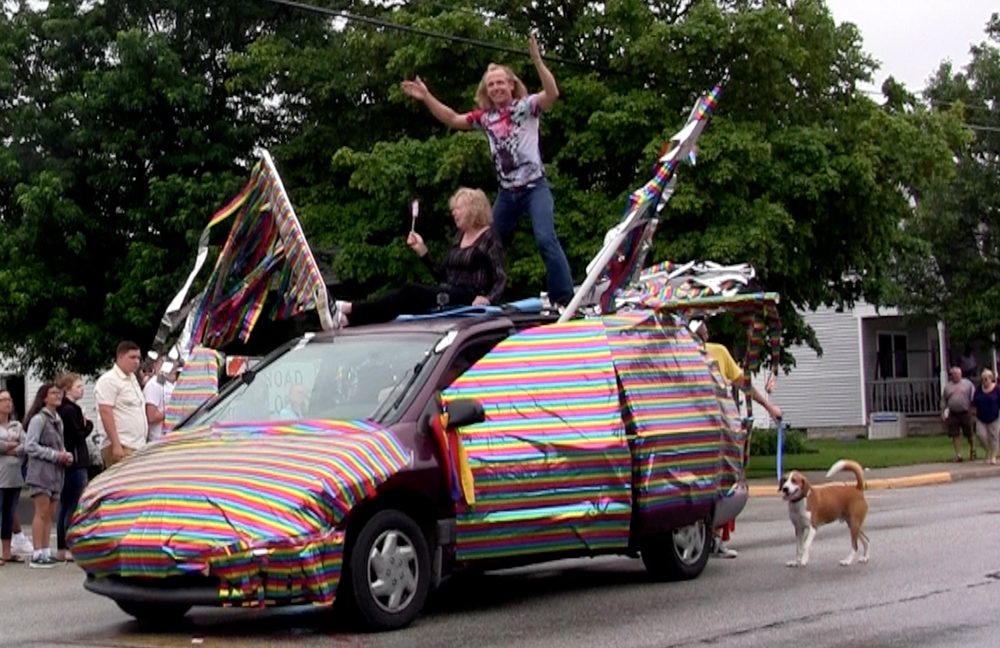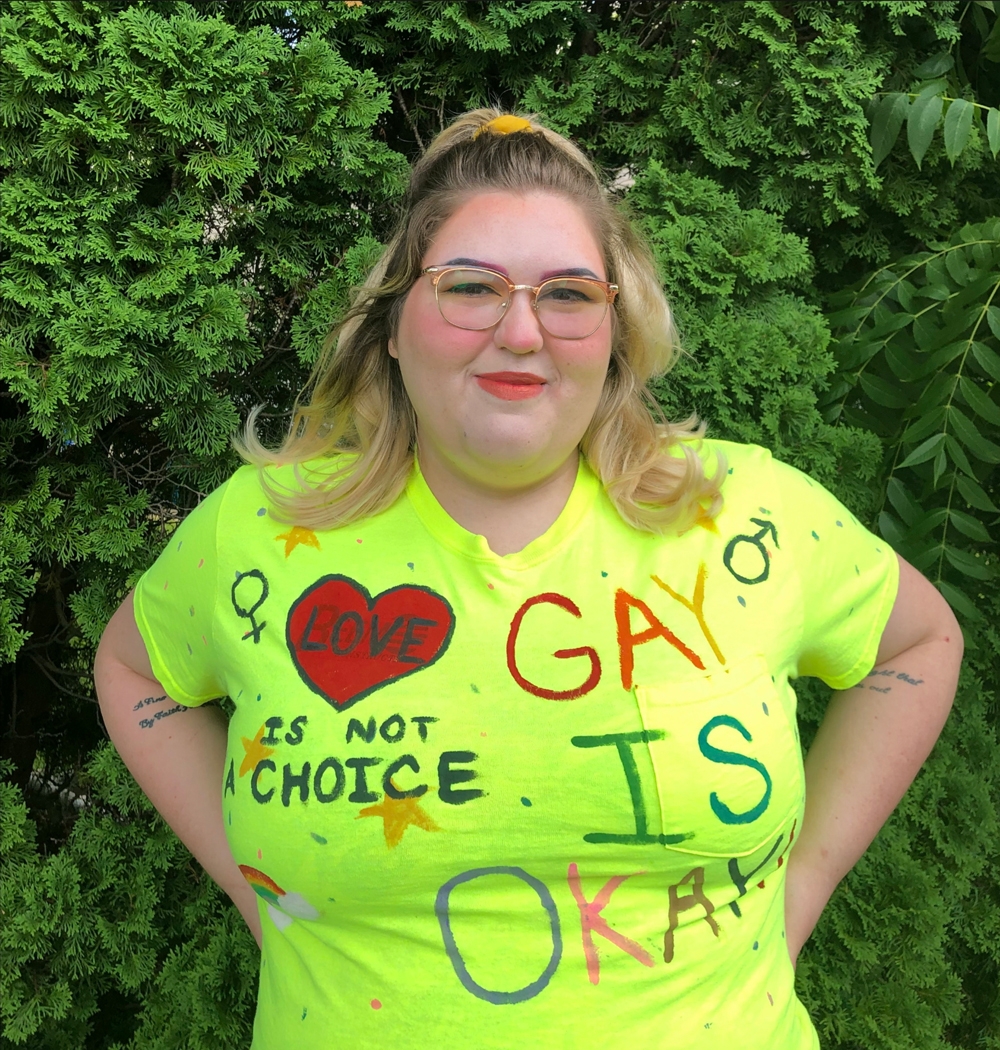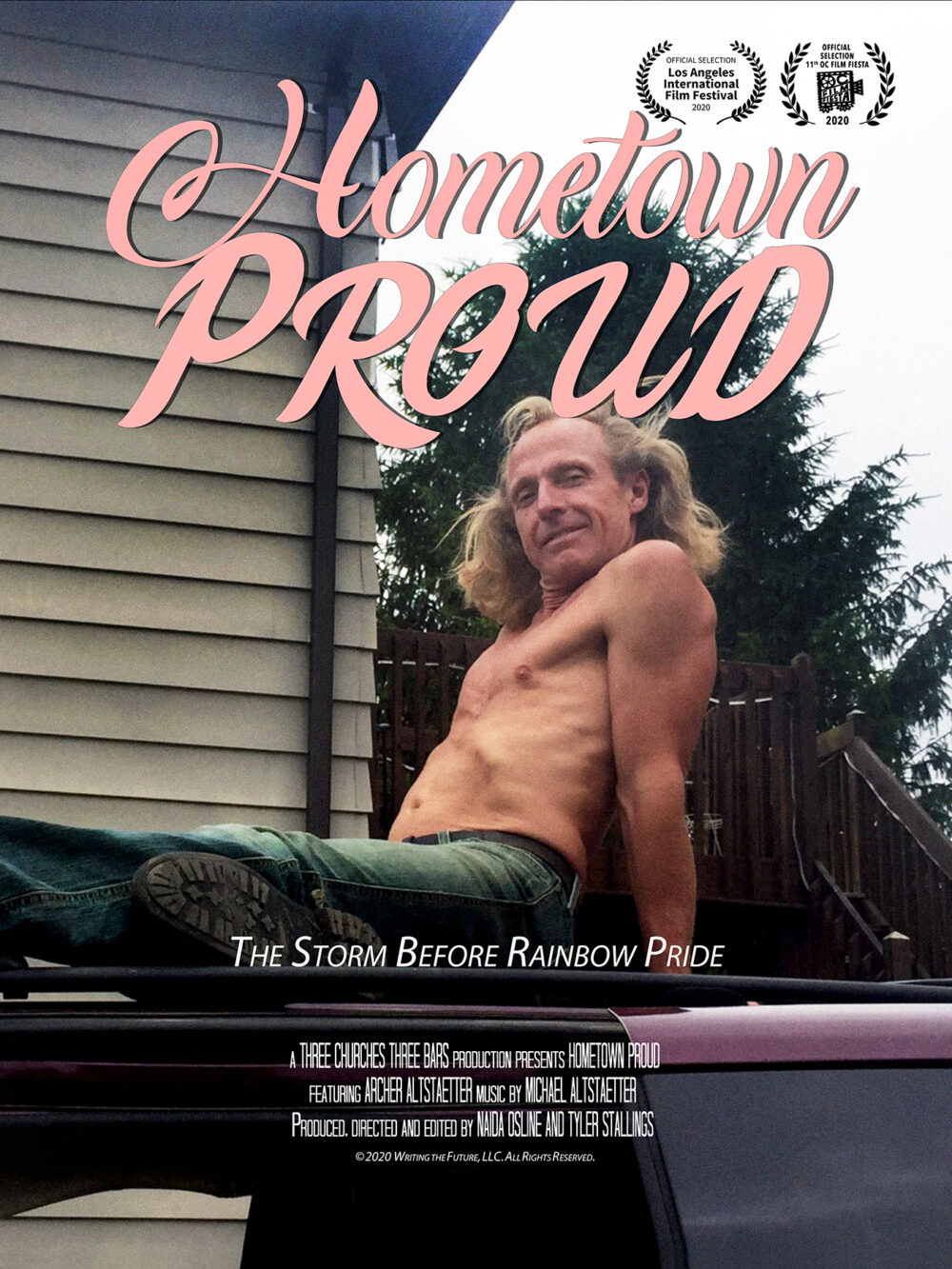Hometown Proud, the debut documentary by Tyler Stallings and Naida Osline, speaks volumes to our current political and cultural environment. The project grew out of their interest in exploring social issues through their individual practices, for Stallings, as a curator, and Osline, as an artist. Filmed in 2018—a year in which the Trump administration worked assiduously to erode legal protections afforded the LGBTQ community, often in the name of protecting religious freedoms—Hometown Proud follows Archer Altstaetter, an openly gay Southern California man, back to his small, rural hometown of Botkins, Ohio, for a dance performance he has been invited to give in the community’s annual “Miss Carousel” pageant. Altstaetter, who left Botkins to pursue a career in dance, is former dance studio owner. He still designs costumes and produces shows that run the gamut—“Everything from nightclubs with go-go dancers and drag queens, to little kids running around in fluffy tutus.” For the sleepy, yet conservative community of Botkins, the place where he spent his youth—feeling acutely that he didn’t fit in—Altstaetter choreographs his dance number as an expression of Rainbow Pride.

Archer and his mom, Ruth, atop his homemade Gay Pride float that he snuck into the parade. His brother, Michael, drove the van. Still from Hometown Proud, 2020, 60 minutes, directed by Naida Osline & Tyler Stallings.
The film quickly establishes through observations made by its subjects, cultural rifts that are reflected in communities across the country, large and small, and writ large in everything from our electoral politics and battles over Supreme Court nominations, to small business lawsuits over providing service to LGBTQ people. To its credit, the film never mentions the national stage or the larger issues being contested. Instead, it works to build a sense of import and the risks—of potential violence—LGBTQ people experience in America, through interviews with residents of Botkins. Many of these are with Altstaetter’s close-knit and supportive family: his brother Michael, who speaks fondly of his youngest sibling and composes the musical accompaniment for his choreography in the pageant; two nieces, one who is gay and out, the other an ally; and his mother, whose love for Archer is clear. Other interviews are with the mayor, the pageant chair, the historical society vice president, a retired history teacher, and a young LGBTQ person.

Maddie Wagner, featured in the film, and longtime resident, who made it possible for same-sex dates at future high school events. Still from Hometown Proud, 2020, 60 minutes, directed by Naida Osline & Tyler Stallings.
What emerges from these interviews, as the film moves from Altstaetter’s preparation, to the pageant and Altstaetter’s performance, and beyond, is the sense that acceptance in this small town is predicated on conformity, and centered on being straight, Christian and white. For every comment—from those fitting the “norm”—that Botkins is a safe place to live and folks there take care of each other, another, from someone within Altstaetter’s circle, complicates or refutes that picture. The reality emerges that it’s a frightening place to grow up if you’re LGBTQ. Hometown Pride shines in these moments, as it builds a nuanced portrait of what it is like to live in this environment.

There are times when the film wanders, covering more territory than it can resolve or cover in sufficient depth in its short 60 minute run time. There is, for example, the mention of Altstaetter’s father and domestic abuse. Altstaetter calls him a sociopath. After leaving his family, a dispute with a business partner in California ended with his body being found in a shallow grave in Angeles National Forest—a story that easily could be developed into another full-length film. But the filmmakers’ interest in this project centers on Archer, his experience of growing up gay in a conservative community, and the dichotomy between the professed values of care and the reality of anti-LGBTQ sentiment within that community. Ultimately, some of the anecdotes related in the film feel like digressions. It is tempting to think the documentary would have benefitted from additional interviews with people outside Altstaetter’s immediate circle, if only to illuminate the views of a broader cross-section of Botkins. One might imagine that in additional footage, the filmmakers would have uncovered what is only hinted at in a few interviews. Yet whether anyone would speak openly on camera about their own anti-LGBTQ views is dubious. But there is plenty of speaking in code, which is proof enough, reflecting a microcosm of the cultural and political divide that is playing out on a national level.
Los Angeles International Film Festival, Nov. 8-14, beginning this Sunday. Link for $10 tickets to the festival. All are online viewing in light of COVID. https://watch.eventive.org/la/play/5f8fe2f4606b56005be5fe92
Vimeo trailer for HOMETOWN PROUD, https://vimeo.com/452919122

